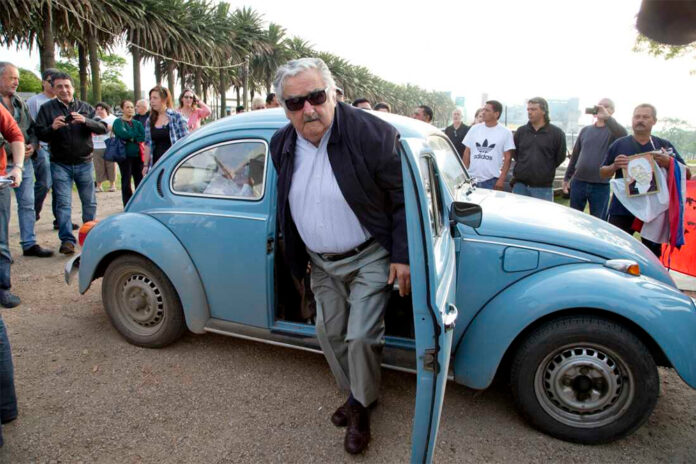by the El Reportero staff
José “Pepe” Mujica, former president of Uruguay and a global symbol of humility and political consistency, died on May 13, 2025, at the age of 89, after a prolonged battle with esophageal cancer that had spread to his liver. He died at his farm in Rincón del Cerro, on the outskirts of Montevideo, accompanied by his wife and life partner, Lucía Topolansky. (ElHuffPost)
Born on May 20, 1935, in Montevideo, Mujica grew up in a family of Basque and Italian origins linked to rural work. In the 1960s, he joined the Tupamaros National Liberation Movement, a Marxist-inspired urban guerrilla group. During the Uruguayan military dictatorship, he was captured and spent nearly 15 years in prison, many of them in extreme conditions and solitary confinement. (Montevideo Government, The Times, Reuters)
After the restoration of democracy in 1985, Mujica was pardoned and joined the Broad Front, founding the Popular Participation Movement. He held positions as a deputy, senator, and minister of Livestock, Agriculture, and Fisheries before being elected president in 2009. His term (2010-2015) was characterized by pioneering social reforms in Latin America, such as the legalization of same-sex marriage, the decriminalization of abortion, and state regulation of the marijuana market. (Diario AS, ElHuffPost)
Mujica was known worldwide as “the poorest president in the world” for his austere lifestyle: he lived on a modest farm, drove an old Volkswagen Beetle, and donated much of his presidential salary. His 2013 UN speech, in which he stated that “wealth is time, not money,” became a manifesto against global consumerism. (AP News, The Times)
In April 2024, Mujica publicly announced his diagnosis of esophageal cancer. In January 2025, he announced that the disease had spread and that he would not undergo further treatment, opting for palliative care. (Wikipedia, Wikipedia)
His death generated a wave of tributes in Latin America and around the world. Brazilian President Luiz Inácio Lula da Silva said: “You left us with the unquenchable hope that it is possible to do things better.” Mexican President Claudia Sheinbaum described him as “an example for Latin America and the entire world for the wisdom, foresight, and simplicity that characterized him.” (BBC)
The Uruguayan government declared three days of national mourning. His legacy endures as a beacon of integrity, simplicity, and commitment to social justice. (Wikipedia)



